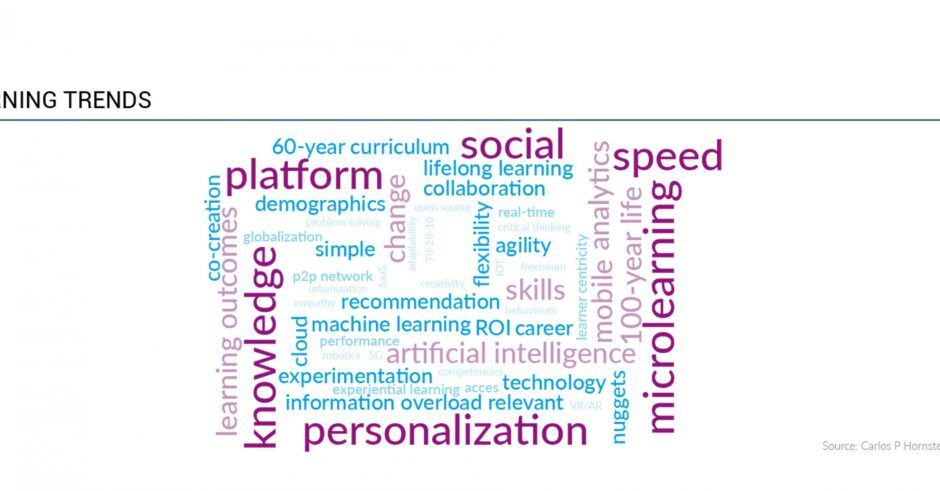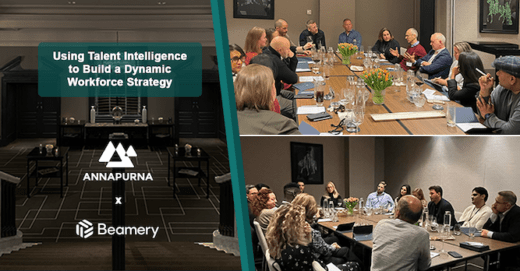There is no doubt education is next in line, in particular, higher education and professional development. The EdTech movement is here and is forcing incumbents and players in the ecosystem to react and adapt. And corporate training is affected by this shift.
Let’s explore how three key trends are affecting corporate training today:
- Speed of Change: companies should offer up-to-date and just-in-time content that is relevant to the needs of the business and its workforce especially covering critical skills to succeed in the 21st century.
- Impact of Technology: corporations should embrace technology to increase productivity and engagement; the use of mobile-friendly platforms and apps should be at the core of any learning intervention.
- Power of the Individual: organizations should develop learner-centric strategies empowering individuals to choose what they want to learn, how they want to learn, when and where.
Statistics indicate we change jobs every 2.5 years, and we lose 30% of our skills every 4 years. If we add the fact that we are going to live longer and presumably work until we are 80, the need to gain new knowledge and skills is critical. We live in the knowledge economy. Gaining new knowledge is a must not a choice, and organizations that learn faster than their competitors are going to win as they are going to be able to attract, retain and develop their people. And since people make things happen, training will be a strategic lever.
Let´s focus on the knowledge workers need to have to do their job: manuals and procedures, compliance, corporate values and standards, product and service information, etc. It is without saying that companies need to leverage technology in a way that is immediate, accessible, innovative and valuable:
• Immediate: On-demand and responsive to the specific needs of the learner
• Accessible: A platform that is simple and easy to use with clear navigation and a straight forward user experience
• Innovative: Next-generation mobile-forward, tailored for the individual learner and capable to leverage the power of social and collaborative experiences
• Valuable: Allows user to measure progress, apply what he/she has learned and receive validation
The chart captures key components of any learning experience and highlights six major trends that go hand-in-hand with those needs:
- Micro-learning: bite-sized content (3-5min long) to improve retention and allow daily consumption
- Mobile: to provide access anywhere, anytime
- Gamification: to improve engagement levels
- Personalization: relevant content is suggested to each individual
- Video-format (and XR): to increase engagement levels
- User-generated content: to contextualize the content, provide authenticity and sense of community
Workers are consumers and there is no reason why HR leaders should not apply those best practices to improve the on-boarding process of any colleague and adopt a learner-centric approach. Organizations just need to take a fresh look at it, listen to their learners, and be open to experimentation: the game is on!
Carlos P. Hornstein is the founder and CEO of an innovative HRTech start-up that offers an onboarding all-in-one AI-driven learning and communication platform to effectively drive workforce engagement and productivity, and sustain business growth in the long term.
Download the niikiis app on Google Play or App Store and be part of the niikiis community.
The Business Transformation Network has posted this article in partnership with niikiis.



